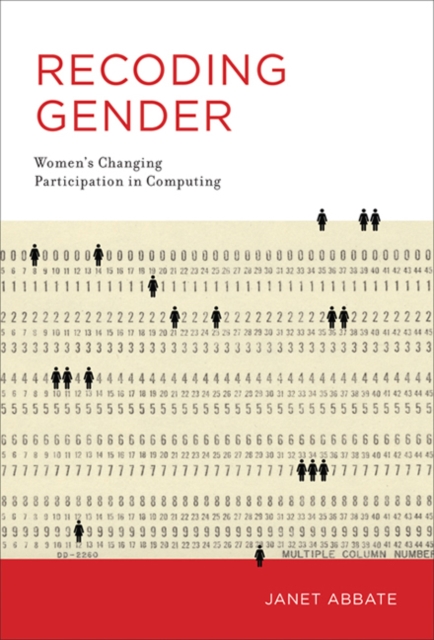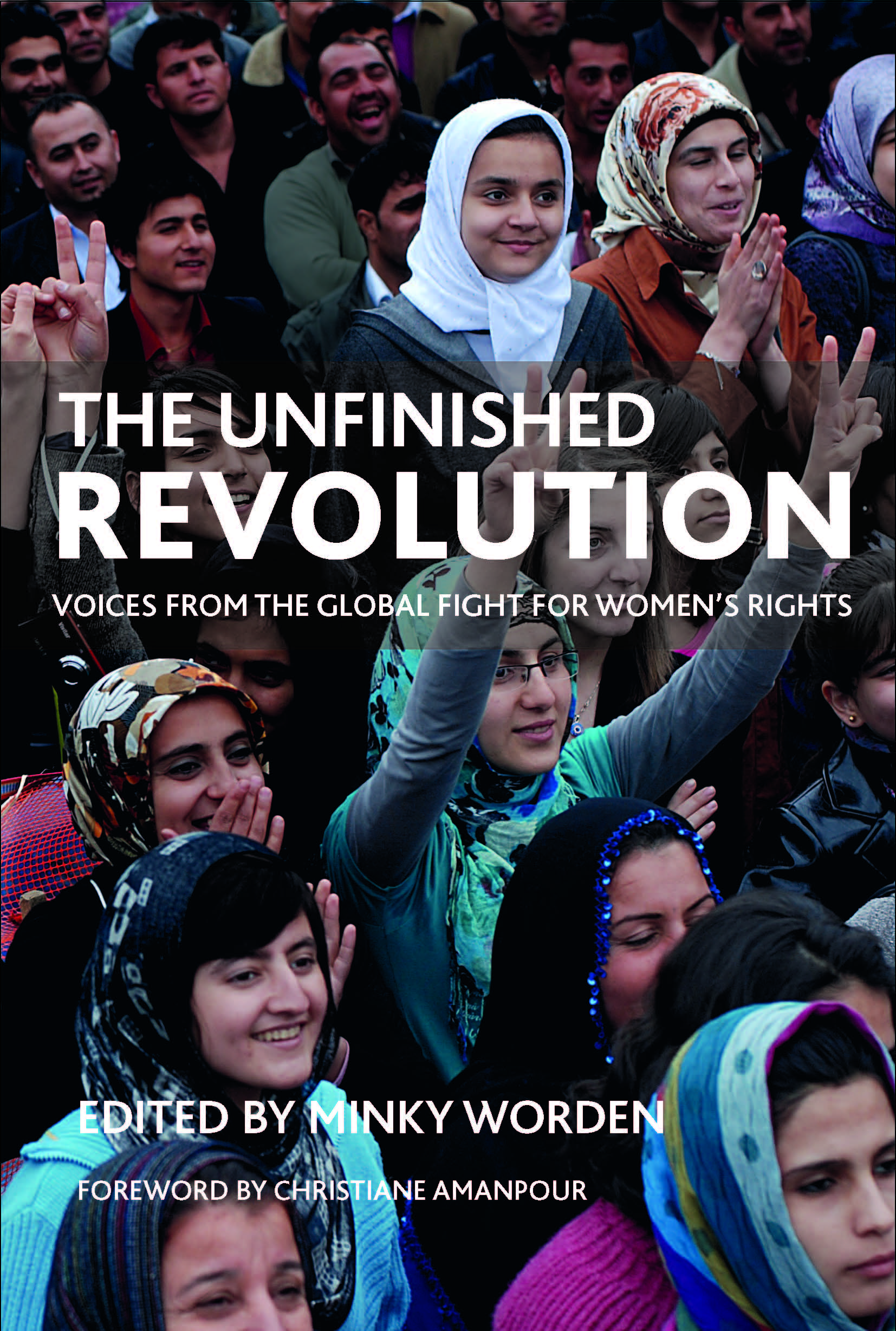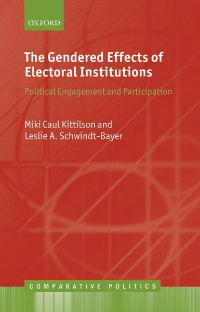
8th March marks International Women’s Day: a global day celebrating the economic, political and social achievements of women past, present and future. Here at LSE Review of Books we’ve put together 10 must-reads on women’s rights, history and achievements.

Recoding Gender: Women’s Changing Participation in Computing by Janet Abbate
In Recoding Gender, Janet Abbate explores the untold history of women in computer science and programming from the Second World War to the late twentieth century. Demonstrating how gender has shaped the culture of computing, she aims to offer a valuable historical perspective on today’s concerns over women’s underrepresentation in the field. Jennifer Miller recommends this book for both readers interested in an account of women’s participation and contributions in the field of computer science and to those seeking answers to the challenges in setting policy for the scientific and technical workforce. Read the full review…

The Unfinished Revolution: Voices from the Global Fight for Women’s Rights by Minky Worden
Women’s rights have progressed significantly in the last two decades, but major challenges remain in order to end global gender discrimination. The Unfinished Revolution outlines the recent history of the battle to secure basic rights for women and girls, including in the Middle East where the hopes raised by the Arab Spring are yet to be fulfilled. Featuring essays by more than 30 writers, activists, policymakers and human rights experts, Natalie Novick concludes that the book’s thoughtful organization and structure make it easily accessible to anyone interested in human rights, women’s issues or global inequalities. Read the full review…

The Gendered Effects of Electoral Institutions: Political Engagement and Participation by Leslie Schwindt-Bayer and Miki Caul Kittilson
An increasing awareness of the under-representation of women in parliaments and business has gone hand in hand with growing debate about gender quotas as a means of rectifying this situation. However, questions persist about their efficacy. The Gendered Effects of Electoral Institutions offers a detailed empirical contribution to this debate. Linnea Sandström Lange finds value in the book, though cautions that it should be used alongside other sources. It assesses the impact of relatively new policies but its highly quantitative approach, as well as the limited time frame of the research underlying it, limit the conclusions which can be drawn. Read the full review…

The Becoming of Bodies: Girls, Images, Experience by Rebecca Coleman
The relationship between bodies and images has long occupied feminism, and this book offers an alternative framework for analysis. Thinking through her original empirical research with teenage girls, involving focus groups, individual interviews and image-making sessions, Rebecca Coleman moves from a consideration of media images – the focus of much feminist research – to examine images more widely; as mirrors, photographs, glimpses, comments, imagination. Nicole Shephard finds that the book is also of methodological interest in terms of bridging a perceived divide between theory and empirical work in cultural studies. Read the full review…

Women, Power and Politics in 21 st Century Iran by Tara Povey and Elaheh Rostami-Povey
This book examines the women’s movement in Iran and its role in contesting gender relations since the 1979 revolution. A fascinating insider’s look at the experiences of Iranian women as academics, political and civil society activists, this book counters the often inaccurate and misleading stereotyping of Iranian women to present a vibrant and diverse picture of these women’s lives, finds Olivia Mason. A welcome and unique addition to the vibrant and growing literature on women, Islam, development, democracy and feminisms. Read the full review…

Neurofeminism: Issues at the Intersection of Feminist Theory and Cognitive Science edited by Robyn Bluhm, Anne Jaap Jacobson & Heidi Lene Maibom
Neurofeminism is the first interdisciplinary collection of essays to address how recent neuroscience affects traditional feminist issues. Philosophers, psychologists, sociomedical scientists, and feminist scholars explore questions of ‘feminine’ ethics, feminist neuroscience, and overcoming unhelpful pop science books. Reviewed by Dafne Muntanyola-Saura. Read the full review…
Shortchanged: Why Women Have Less Wealth and What Can Be Done About It. Mariko Lin Chang
How do we close the gender wealth gap? Mariko Lin Chang assesses the policy situation in the US, suggesting reasons as to why many women find it hard to escape debt anchors, and how barriers often prevent them from taking the wealth escalator. Joe Laking concludes that although Shortchanged fails to offer any radical solutions to wealth inequality, it does present a well-evidenced argument for addressing the gender wealth gap. Read the full review…
The Future of Feminism by Sylvia Walby
Sylvia Walby has long been a major figure in theorising feminism through a materialist perspective, most famously in her influential Theorizing Patriarchy (1990). In her 2011 book, Walby offers a broad overview of how gender inequality has been addressed and women’s interests articulated over the past four decades. She takes an inclusive definition of feminism which is usefully able to encompass both projects explicitly named as feminist, and those which advance women’s interests but do not claim an explicitly feminist affiliation. Reviewed by Lucy Delap. Read the full review…

Modern Women in China and Japan: Gender, Feminism and Global Modernity Between the Wars by Katrina Gulliver
At the dawn of the 1930s a new empowered image of the female was taking root in popular culture in the West, also challenging the Chinese and Japanese historical norm of the woman as homemaker or geisha in the East. Through a focus on the writings of the Western women who engaged with the Far East, this book reveals the complex redefining of the self taking place in a time of political and economic upheaval. An appealing read for those interested in gender, cultural exchange and cultural borrowing, says Valentina Boretti. Read the full review…

Gender, Agency and Political Violence: Rethinking Political Violence by Linda Åhäll and Laura J. Shepherd
Considering the conditions, maintenance, and interpretation of political violence, the authors contributing to Gender, Agency and Political Violence analyse the multiple ways in which acts of violence, strategies of resistance, and efforts at conflict resolution are gendered. Featuring chapters on emotion and masculinity alongside The Troubles, and the political rationality of female suicide bombers, Megan O’Branski finds an intriguing and thoughtful contribution to critical theory scholarship. Read the full review…